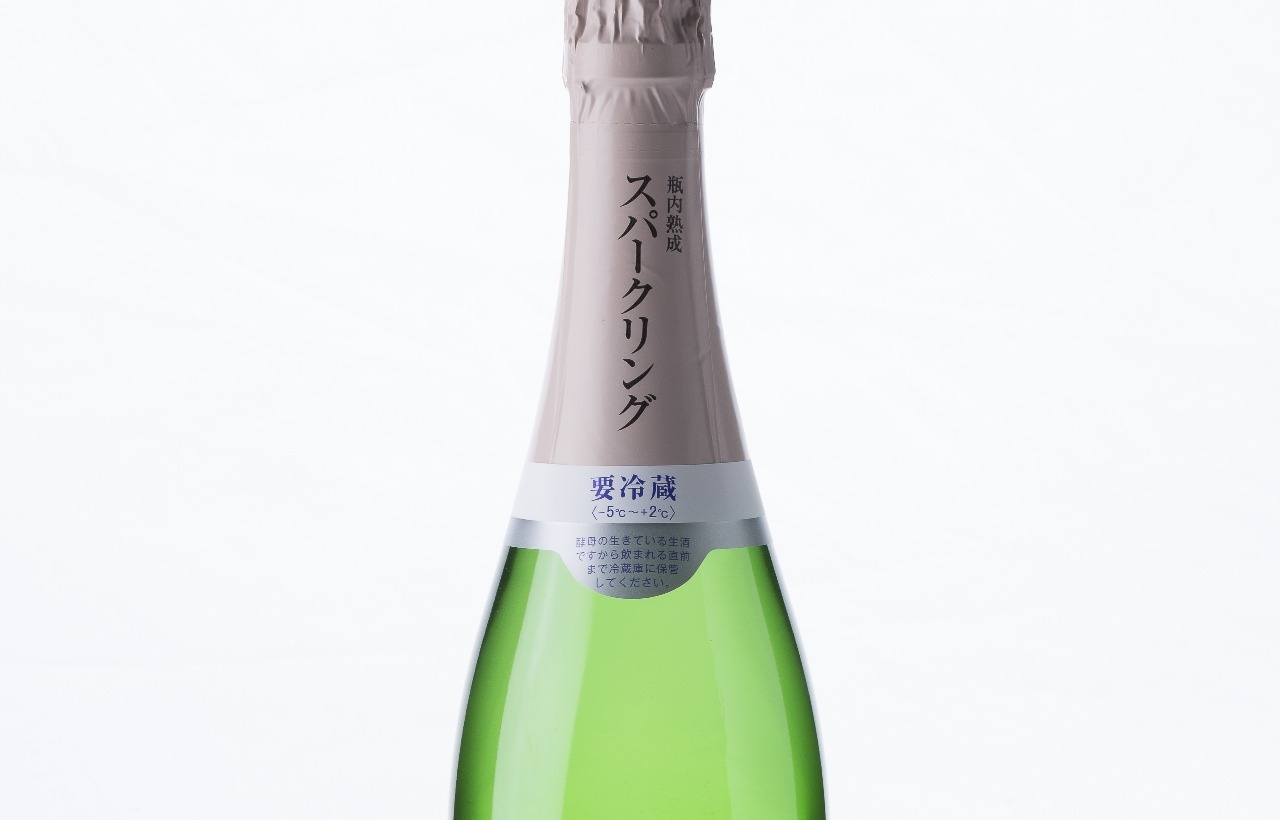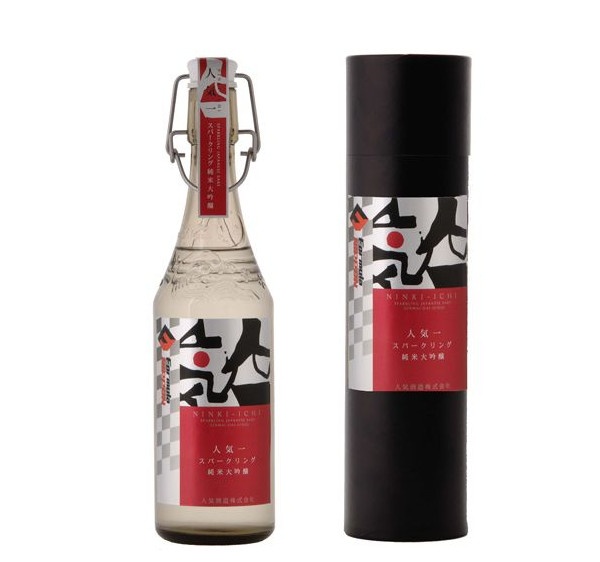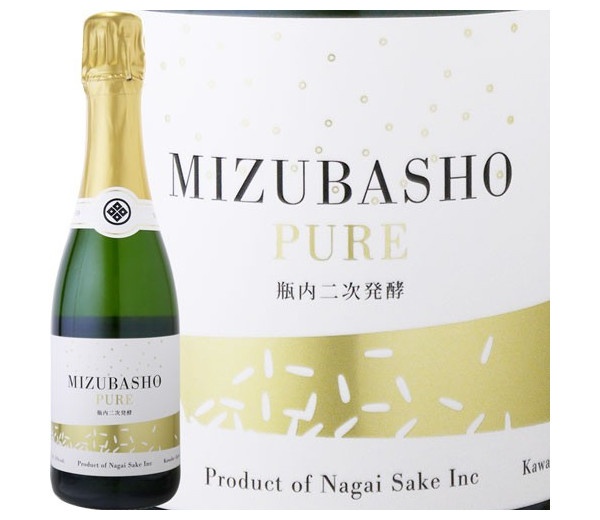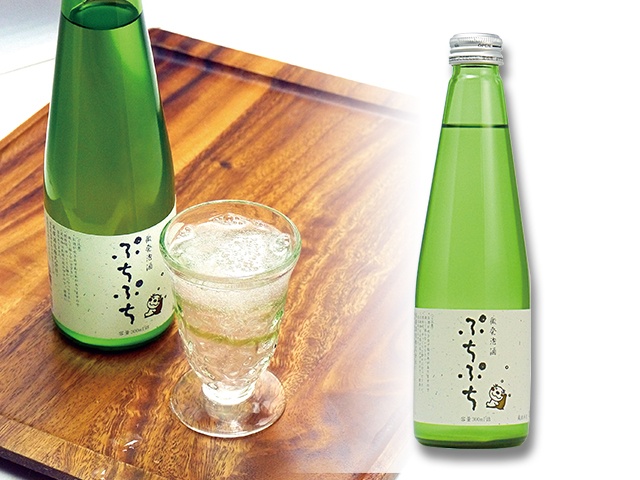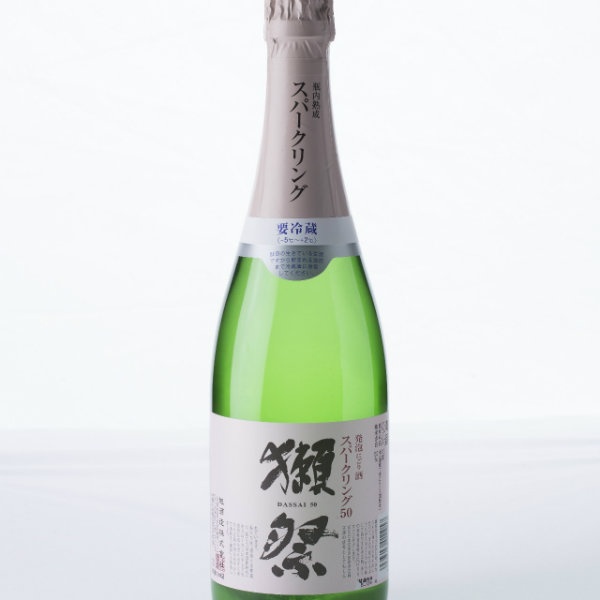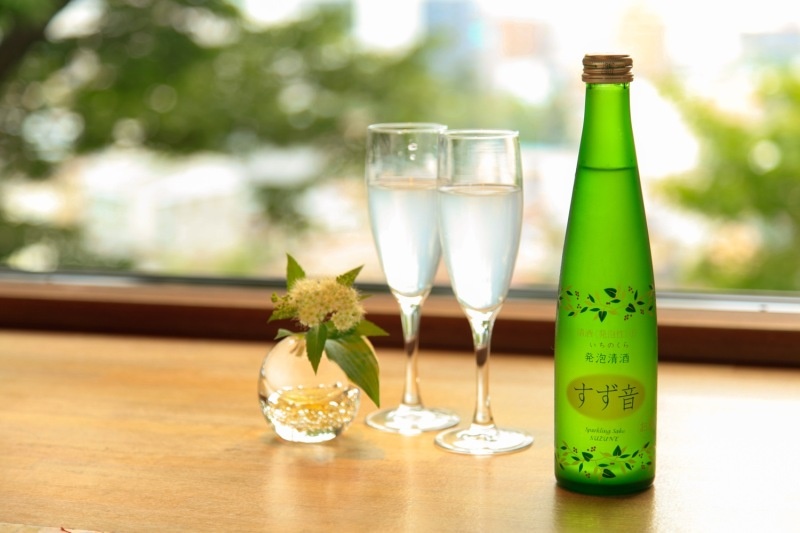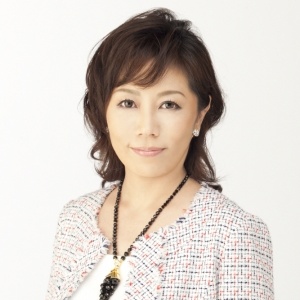The 5 Best Sparkling Sakes
Sparkling sake is a great way to step into the world of nihonshu, and a fashionable and healthy way to enjoy your tipple if you're already a sake expert. Here we outline five great options, from casual, easy-drinking selections to delicate, high-end bubbly—and even a rosé!
By Akiko Tomoda5. Ninki-ichi Sparkling Junmai Daiginjo
While Ninki-ichi (人気一) literally means "most popular," it's actually a play on words based on the idea that this sake is brewed by people (人) who put all of their feeling (気) into the job. Befitting the name, this sparkling sake was used in the award ceremonies at the Japanese Championship Formula Nippon, considered among the top class of auto racing in Japan.
The impactful label and styling of the dedicated pressure-resistant bottle combine with the sophisticated taste of in-bottle secondary fermentation that you get with junmai daiginjo sake to offer a unique sake experience. The label on the champion bottle bears the signature of 2009 Formula Nippon series champion Loïc Duval.
4. Mizubasho Pure
This totally clear, transparent sparkling sake was born from a policy of quality over quantity. Taking five years to develop the product, the techniques for first and second fermentation, as well as the method of removing sediments and such, were all learned in France's Champagne region, the home of champagne production. Naturally, Mizubasho Pure is created with such devotion that even the bottles and corks—normally used for champagne—are imported from France as well.
3. Suehiro Bihapposhu Puchi-Puchi
Suehiro Sake Co. was established as a business in 1850 in Aizu, the westernmost of the three regions that make up Fukushima Prefecture. In then ensuing 150 years, the brewery has continued to produce authentic local sake with "the water of Aizu, the rice of Aizu, and the people of Aizu."
At first glance, this sake seems like a soft drink or a beer-like happoshu. However, this is a genuine champagne-style sparkling sake that's roughly squeezed and bottled, then put through a careful process of in-bottle secondary fermentation. The balance of Japanese sake qualities and a moderate amount of bubbles hints at the sensibility of the maker.
2. Dassai Junmai Daiginjo Happo Nigori-zake Sparkling 50
Sake fans not only in Japan but the world over all want to get their hands on this ginjo. Asahishuzo Co., Ltd.'s company policy states that when making a nigori sake (a kind of sake with a cloudy appearance due to the blended rice), the rice must be delicious—with the result that this sake offers an exquisite balance of sweetness, acidity, moderate full-bodiedness and refreshing aftertaste.
This is a masterpiece where fine bubbles coexist with the delicious flavor that you'd expect of sake. The degree of nigori (cloudiness) varies between the top and bottom of the bottle, and it's fun to see the difference in transparency depending on the timing of your pour.
1. Ichinokura Suzune
Since it was founded in 1973, Miyagi Prefecture's Ichinokura Co. has always taken on new ventures while maintaining tradition and anticipating the future. Just like champagne, in-bottle secondary fermentation produces fine bubbles and a delicate taste. Ichinokura Suzune’s sweet-sour refreshing taste is well suited to toasts and pre-dinner drinks. The pale cloudiness also looks appealing in a champagne glass.
Read more in Japanese at AllAbout.co.jp.


